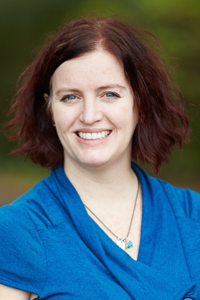Don't see what you're looking for?
Main Site
Berklee.eduCampuses and Schools

Kelly Davidson
Kaye Kelly
For media inquiries, please contact Media Relations
Kaye Kelly is a Boston, Massachusetts–based songwriter and performer. With three studio albums and a large catalog of original music, she is most at home fidgeting with her love of words while playing the piano. Kelly works from her home studio near Berklee College of Music, where she has taught for nearly two decades. Her lyrically driven songs, which vary from singer-songwriter to sophisticated pop, always have one thing in common: emotion. Whether writing about lost love, escape, or everyday stories, the authenticity of her words and vocals sets her music apart.
- Vocalist, pianist, composer, and bandleader
- Performances with the Duke Ellington Band, Voices of Liberty at Epcot Center, the Walt Disney World Orchestra, the Boca Raton Pops, and numerous studio jingles in the pop, rock, and jazz genres
- Original music licensed on ABC, CBS, and NBC
- Recordings include Coming Undone (2000), a full-length CD featuring original pop/rock compositions; Wide Open Road (2012); and Gone without a Sound (2016)
- Faculty mentor and visiting professor, Berklee's campus in Valencia, Spain (2018)
- Faculty mentor to Berklee Global Partner schools
- Founder and program director, Music On-the-Go
- Recipient of the Berklee Faculty Fellowship for songwriting for film and television (2016)
- M.M., Boston Conservatory at Berklee/Berklee College of Music
- B.M., University of Miami
“The concepts we study in ear training classes teach students to recognize, interpret, and notate musical sounds and ideas. These skills are invaluable to developing musicianship and completely necessary to succeed in a competitive field. I try as much as possible to make my classes relate to what students might be doing when they graduate from Berklee. We listen and analyze all styles of music and discuss real-life musical situations they might find themselves in.”
“I love to watch the wheels turning and then the light bulb go on when a student is learning to read music or learning how to hear something new. It’s especially fun to watch someone with no prior singing experience—and a large aversion to it—build up their confidence and succeed. We spend a lot of time singing in class and although not everyone likes it their first semester, everyone learns a comfortable way to go about it. Singing is the ultimate way to internalize something you’re hearing. It’s an important skill for all students regardless of their major. It’s also the perfect way to convey your musical ideas when you are away from your instrument.”
“This is a learning environment. I find that once students allow themselves to make mistakes, they usually don’t. I try to provide a supportive environment to make mistakes here and there. I’d much rather have them make mistakes in class so we can figure out why and how to fix them so they don’t happen in the studio or at a show.”
